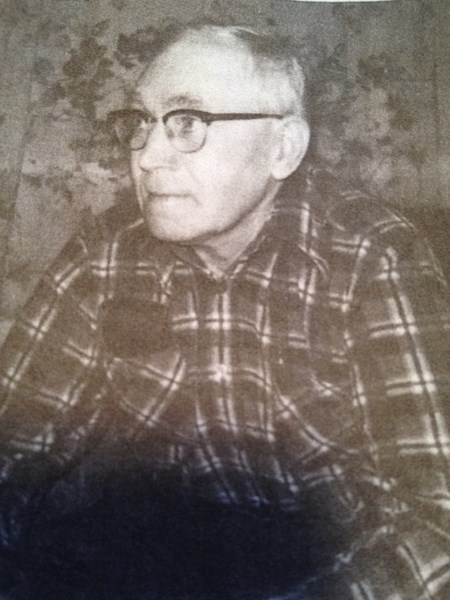George Watson was a music teacher living in Water Valley when I met him in the 1970’s. He taught many people to play banjo, guitar and accordion, and my son was one of his students learning to play the guitar.
George loved music, played the banjo most of his life, but oddly enough he didn’t learn to read music until he attended music school himself at the age of 56; then he learned how to play a five-string banjo. After World War II George played his banjo for dances with Gene Winchell and George Butler, and they were the first orchestra to play in the Morley Hall. The name of their orchestra was “Timberline Serenades.”
In settling in this country so very long ago, I found that George had a very interesting background. He was born in Walthamstow, England, on Jan. 26, 1910, of Scottish descent, with his ancestors traced back to William the Conqueror. George started to work in a machine shop when he was 14 years old. Times were tough in England when he was growing up, but he managed to save some money to buy an old mandolin which he learned to play. When he lost his job in 1926, he decided to get on a boat and come to Canada.
His first job in Canada was in Dunfermline, Sask., helping a farmer and his wife milk 54 cows by hand. This job paid $10 per month. He also worked for another farmer, receiving $5 per month. Times were tough here in Canada too, but he did manage to save a little money and buy himself a Grey Dort car for $25. After working in Saskatchewan for eight years and experiencing a trip to the Calgary Stampede, Alberta began to beckon him. He borrowed $20 from a store owner and drove to Cremona.
He found a job at the Alexander Ranch, earning $30 per month. Even in those days opportunities were greater in Alberta. It didn’t take him long to repay his loan to the store owner. When Mr. Alexander retired after four years, George moved to Water Valley to work for Glen McNicol for two years.
George was looking for some land of his own and found a half section of Hudson’s Bay land for sale near Water Valley. Immediately he went to the Hudson’s Bay Land Office to offer them $300 and received a clear title. This enabled him to go into the lumber business with three quarters of a million board feet of lumber on the property.
At this time World War II was well on its way and George joined the army for a period of four years. While on leave in Europe, he decided to visit his two brothers Harry and David in England, whom he had not seen for 18 years. In 1946 David and his wife Violet and their family immigrated to Canada and came to live with George in Water Valley. About six months later, George sold the land to his brother.
George continued to work at various jobs in and around Water Valley and finally acquired a government job building the Robert Bruce statue in Calgary, followed by a warehouse job.
George Watson lived in turbulent times, much like we are now, within an economic downturn. History tends to repeat itself. George Watson is a good example of how people do survive. We are all survivors, we just need to adjust and remain optimistic.




